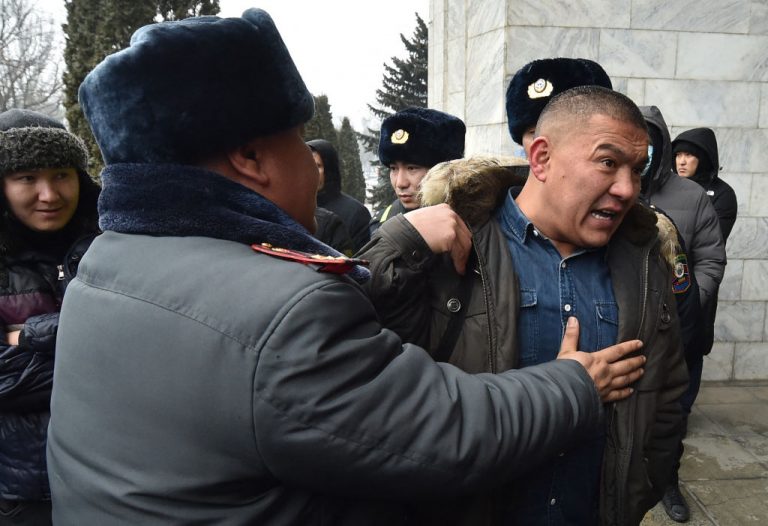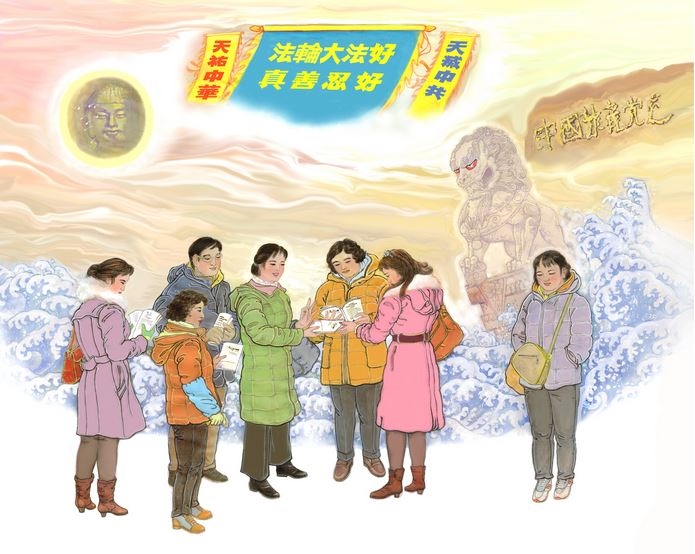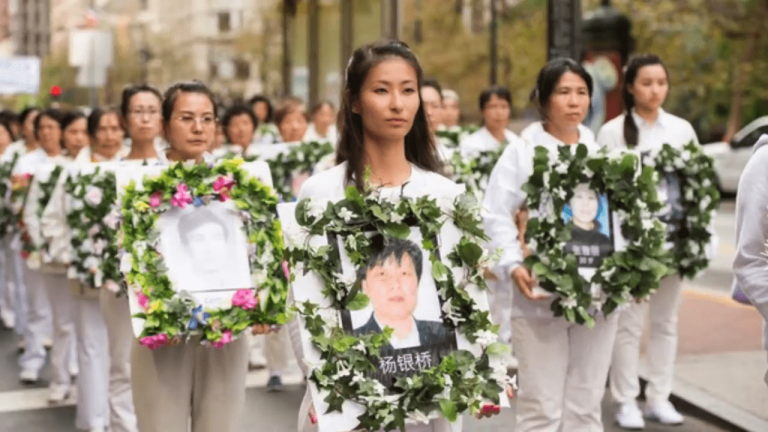According to a report released on Jan. 10 by Bitter Winter, over 100 asylum seekers have been sent back to Xinjiang by Kazakh and Chinese officers amid violent protests that have erupted across the Central Asian country in the past week.
Kazakhstan is currently experiencing the worst unrest it has seen in more than a decade over a spike in fuel prices and widespread disapproval for the country’s ruling party. Government buildings were seen being set on fire as widespread protests swept across the former Soviet republic of nearly 20 million people.
Kazakh media has reported that dozens of protestors have been killed in confrontations with police and videos circulating on social media showed droves of demonstrators facing off against hundreds of security forces in riot gear.
On Jan. 6, Russia and other members of the Collective Security Treaty Organization (CSTO), announced they would send troops to help restore order and stabilize the country after Kazakh’s President Kassym-Jomart Tokayev appealed to the military alliance for assistance. The first of about 2,500 Russian-led troops arrived in Kazakhstan last week.
China’s foreign minister Wang Yi also said during a phone call with Kazakhstan’s foreign minister Mukhtar Tileuberdi on Jan. 10 that Beijing would be willing to deploy troops in support of the country’s police forces.
READ MORE:
China Announces It May Deploy Troops to Support Kazakh Government Amidst Unrest
Russian-led Troops Enter Kazakhstan to Quell Unrest; ‘Dozens Dead’
Success
You are now signed up for our newsletter
Success
Check your email to complete sign up
Bitter Winter’s report cites sources as claiming that some of the rioters were not real demonstrators, but rather Russian “peacekeepers” wearing Kazakh uniforms and inciting chaos.
“The Almaty City Government building, for example, was not burned by real demonstrators. We have reports we cannot verify, but coming from serious sources, that some of those firing at Kazakh civilians were not Kazakh soldiers,” the report said.
Bitter Winter is an online magazine that focuses on religious liberty and human rights issues in China. According to its website, the magazine receives some of its reports directly from members of religious minorities and organizations persecuted in China and elsewhere.
READ MORE:
Tales of Rape and Forced Sterilization, Uyghur Women Retell Horrors of Communist Camps
Another Woman Dies in China After Suffering 20 Years of Persecution for Practicing Falun Gong
Amid the hundreds being arrested in Almaty as a result of the protests, many “among those arrested are people who were not particularly active in the current protests but have demonstrated in the last few months against the detention of thousands of ethnic Kazakhs in the dreaded transformation through education camps in [China’s] Xinjiang region,” the report said.
It added that Almaty asylum seekers who escaped persecution in Xinjiang are now being “detained and immediately deported back to China by officers of the Chinese Consulate and Kazakh police.”
Many of the refugees are “ethnic Kazakh citizens of China who managed to cross the border, sought asylum, and applied for Kazakh citizenship. Some already had their green card and were legally entitled to remain in Kazakhstan.”
The report added that the refugees were taken from their homes, detained, and forcibly escorted to the Horgos Customs – the border between Kazakhstan and China that has remained closed since the unrest began earlier this month. The border was allegedly re-opened so that the refugees could be taken back to Xinjiang, with their fates unknown.
The Chinese Communist Party (CCP) has long been accused of rampant human rights abuses targeting religious faiths and minorities for violent assimilation to its atheist ideology. Most recently, the Party was accused of forcefully sending more than 1 million Uyghurs — a Muslim ethnicity — to concentration camps in their native Xinjiang and across remote regions in Western China.
In addition to Muslim Uyghurs, the CCP has also targeted Chinese Christians, Tibetans and adherents of the Falun Gong spiritual practice – many of whom have suffered persecution for decades.












